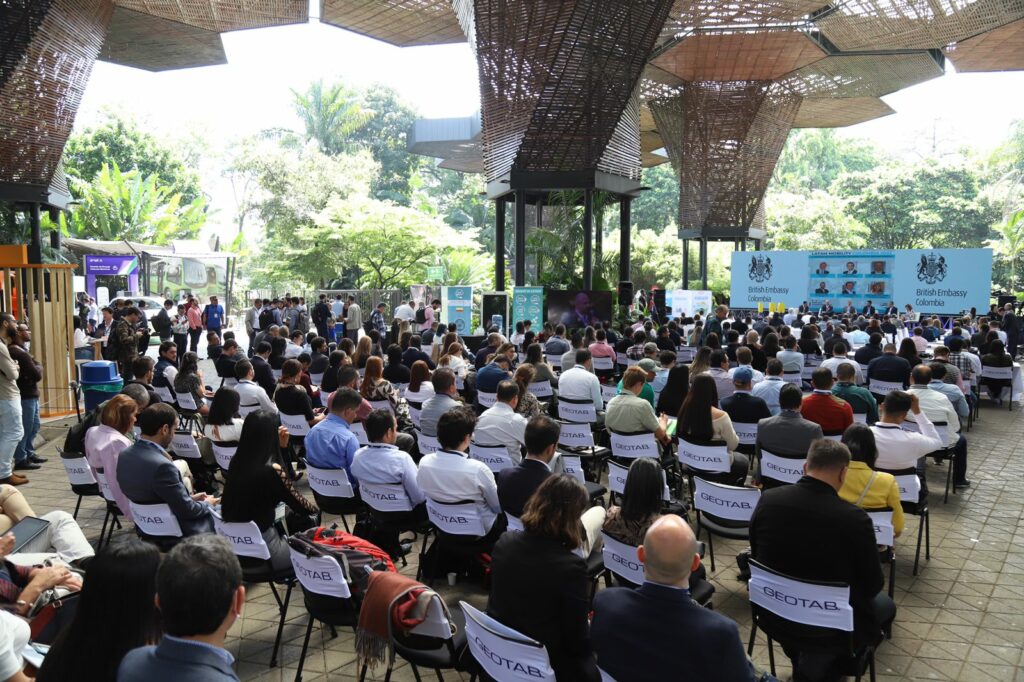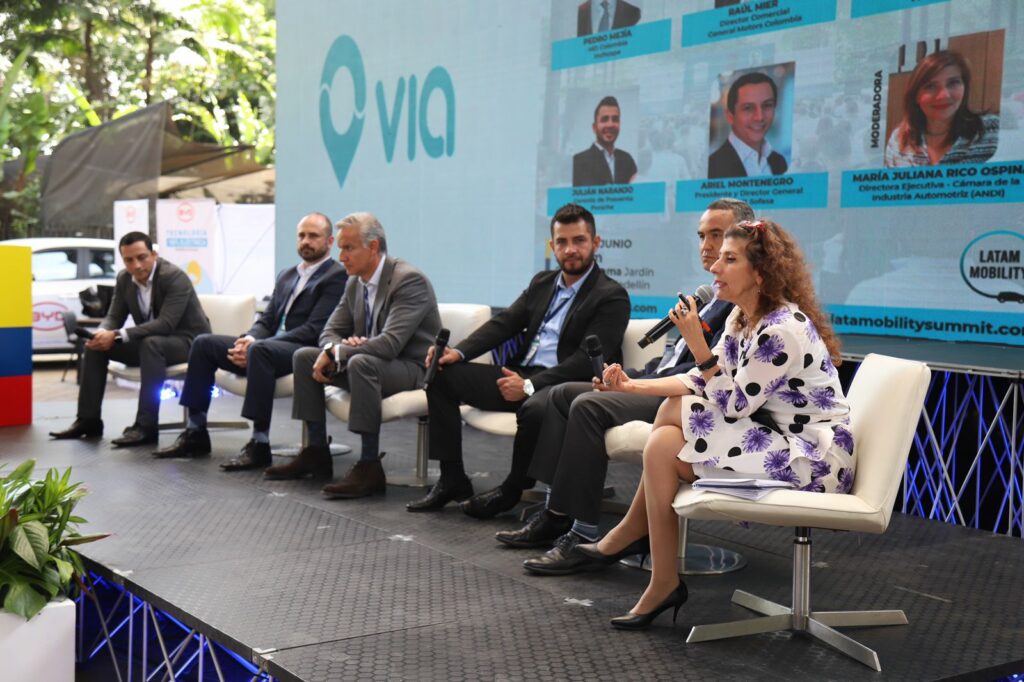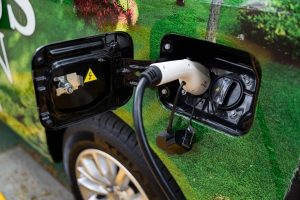
Regulations to Standardize Charging Criteria and Consumer Education: Keys to Automotive Transition in Colombia

According to data published by the National Association of Sustainable Mobility of Colombia (Andemos) a total of 118,191 hybrid and electric vehicles were registered in Latin America in 2021, more than 100% compared to 2020, when 57,078 units were registered.
In addition, the leadership in sales is held by Colombia, with 1,296 electric units registered in 2021, and 1,097 in the first three months of 2022, well above Mexico with 1,140 electric vehicles registered in 2021, and 570 in the first quarter of this year, totaling 5,586 fully electric vehicles in circulation.
Considering this growth, the leading community in sustainable mobility in Latin America, Latam Mobility organized at the Orquideorama Botanical Garden in Medellin, the face-to-face meeting “Latam Mobility: Colombia 2022“, where leading companies in the region discussed the present and future of mobility in the country.
The meeting was attended by representatives of Jaguar, General Motors, Volvo, Porsche and Renault, who participated in the panel “The Transition of the Colombian Automotive Sector Towards Electric Vehicles“, under the moderation of María Juliana Rico Ospina, Executive Director of the Chamber of the Automotive Industry (ANDI).
Three Challenges
Pedro Mejía, Manager Director of Jaguar in Colombia, indicated that he considers that there are three fundamental challenges to guarantee sustainable mobility in the country: regulation, finance and technology, elements that must go hand in hand to meet the proposed objectives.
“The different government entities, such as the Ministries of Transportation, Energy, Environment and Health, must guarantee stability in regulations, including planning to streamline processes, because in order to advance in sustainability the rules must be clear,” Mejía expressed.
In addition, the executive pointed out that “there is a financial challenge, which is important to gradually ensure the necessary infrastructure in the massification of these new technologies, because we cannot only talk about electrification, since hydrogen will play an important role, especially over long distances”.
Standardization: Key Issue
For his part, Giulliano Decicino, Commercial and Marketing Manager of Volvo Colombia, said that manufacturers are one of the protagonists of electromobility, but they must also consider standardization, as well as plurality in the infrastructures linked to zero-emission mobility.
“We must think about plural spaces when talking about infrastructures, such as in residential and commercial areas, which are within the reach of users, as well as unifying the charges, to generalize their use,” said Decicino.
In addition, the Volvo executive pointed out that it is important the segmentation depending on the type of fuel used by the vehicles so that the decision making is specific, as well as the need for a parallel road project to improve the conditions of the roads for a better displacement of the users in the country.

Joint Responsibility
For Ariel Montenegro, President and CEO of Renault Sofasa, the promotion of sustainable mobility in Colombia and the region is a responsibility for both the public sector and the manufacturers, and they must work hand in hand to achieve the objectives set.
“Efforts must be focused on accelerating sustainable mobility, but above all, on charging structures in order to generate confidence in the user when investing in a low-emission vehicle,” said Montenegro.
On the other hand, the executive emphasized the right to charge so that each consumer can have the availability to do so, as he considers this to be a key factor when deciding on the purchase of zero-emission vehicles.
Cargo Distribution: Main Challenge
Julián Naranjo, After Sales Manager of Porsche Colombia considers that cargo distribution is the main challenge for sustainable mobility in the country. “It is estimated that 80% of the loads will be carried out at home, so it must be legislated for what is to come, starting with improving the existing.”
“At the time of offering solutions for our customers in their homes, we find that the horizontal property regulations are not updated to the needs of load, so it is important that it begins to be considered as a service of first necessity,” emphasized Naranjo.
In addition, the executive of Porsche Colombia, said that Law 1864 that promotes the use of electric vehicles in the country has solid foundations, but should be reviewed, as well as rethink some points for updating. Likewise, he considers that its compliance must be closely monitored.
Rethinking policies
Raúl Mier, Commercial Director of General Motors Colombia, indicated that the public policy must be rethought, as well as developing four fundamental axes as an ecosystem, considering brands, government entities, unions and entities for the development of energy charging infrastructure.
Among the four axes to be developed, the executive pointed out the following:
- The need to accelerate the definition and separation of low- and zero-emission vehicles, to start talking about environmental impacts, and not technology.
- Review incentives, which can be tariff or tax incentives, and mobility incentives, so that zero-emission vehicles have differential treatment.
- Consumer education, to understand the impacts between technologies and how they affect environmental care.
- Understanding the role of the industry, both assemblers and auto parts, to develop viable productive projects for the future, both in Colombia and the region.
Finally, María Juliana Rico Ospina, director of ANDI, expressed the importance of the work that has been developed in Colombia, and gave some recommendations related to sustainable mobility, such as the promotion of targeted incentives; maintaining the local production of zero emission vehicles; making the circular economy of electric vehicle batteries, and reunifying charging spaces.
Written by Antonio Vilela





